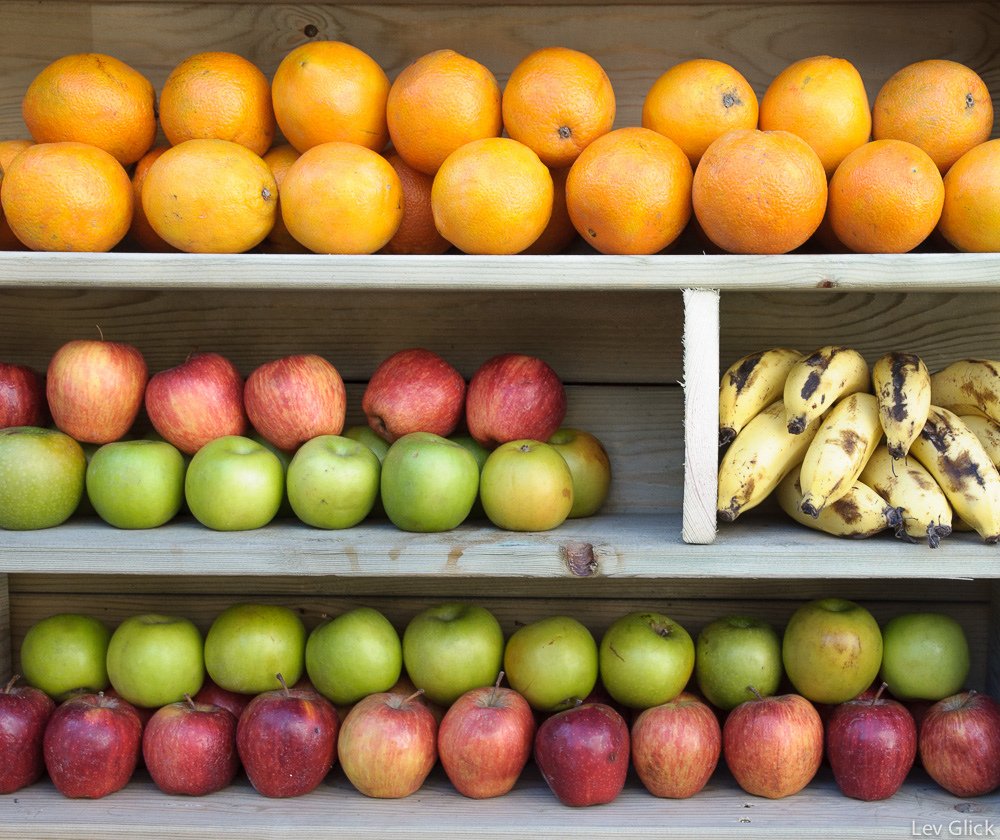Because I believe the path to prosperity is a logical one, I will use an exact and logical science to map it out – mathematics. Now, draw back that sigh and refocus those glazed over eyes, because I’m not referring to differential calculus or trigonometric equations; I am talking about simple algebra. For instance, I could denote in algebraic terms the idea that prosperity is all about money:
Wealth is Excess but Prosperity is Enough
I’m not suggesting this formula is correct, but it’s important to note my interest in prosperity and not wealth. Wealth is a by-product of the mentality of excess, whereas prosperity’s is a by-product of the mentality of enough. Not only that, the pursuit of wealth is futile as governed by excess; it is infinite. It’s why so many are trapped in the work-consume-sleep cycle. Prosperity, on the other hand, is a more rational and achievable objective, as it is finite and the result of your own ideas about enough.
Kurt Vonnegut articulates the distinction between excess and enough in his poem in The New Yorker in May of 2005, reprinted in John C. Bogle’s Enough: True Measures of Money, Business, and Life:
JOE HELLER
True story, Word of Honor:
Joseph Heller, an important and funny writer
now dead,
and I were at a party given by a billionaire
on Shelter Island.
I said, “Joe, how does it make you feel
to know that our host only yesterday
may have made more money
than your novel ‘Catch-22’
has earned in its entire history?”
And Joe said, “I’ve got something he can never have.”
And I said, “What on earth could that be, Joe?”
And Joe said, “The knowledge that I’ve got enough.”
Not bad! Rest in peace!
Enough is when Actual exceeds Expectation
One is prosperous, that is one has enough, to the extent that one’s expectations are met. So, moving on from PR=$s, prosperity is found when your actual situation exceeds your expectations:
Your actual situation (AC), and let’s focus on the tangible aspect of it, includes things like your assets, debts, income and your spending profile.
Getting back to the maths, your actual situation (AC), is a function of your financial position, depleted by your propensity for consumerism and enhanced by your inclination towards minimalism.
Reducing your level of consumerism has many personal and global advantages but of relevance here, is that you simply spend less. The practice of minimalism suggests moving towards owning only those things that have utility or that bring you joy. The extent to which you exercise this positively affects your prosperity because you acquire fewer things, own fewer things and need to maintain fewer things, all of which lead to less spending. Consumerism and minimalism are a product or your mindset, but they are outwardly represented by physical things, by stuff.
So, to achieve or increase prosperity, one option is to improve your actual situation (AC). You can work more and earn more money ($S), you can reduce your consumerism (CN) or practice minimalism (MN). All of these are more difficult than working with your expectations (EX), because expectations are in part only a mental construct.
Expectation is your Needs & Wants
Expectations are not as rigid as your actual situation. Expectations are made of needs and wants, the latter being more flexible than the former.
Seneca, in Letters from a Stoic, says: “Do you ask what is the proper limit to wealth? It is, first, to have what is necessary, and second, to have what is enough.” When he talks about a proper limit to wealth, he is referring to being prosperous. To have enough is to have your expectations, your needs and wants, met.
Needs are the more unyielding of the two and are similar for all people. There are some variations for people in different situations but compared to wants, they are more homogenous. According to Maslow’s hierarchy of needs, the basic needs are food, water, warmth, rest, security and safety. I’ll throw in medicine and education for good measure. If these basic needs are not met, it’s likely that you do not have enough and more of something will contribute to your prosperity.
I’m not suggesting that we all live just on the bare essentials required for survival. I don’t want to just survive; I want to live a good life. And this is where wants comes into the equation. After my needs are met, I’ll seek to have my wants met, so that all my expectations are met. This is the most flexible and easiest ingredient to address in my now fully developed formula for prosperity.
For the algebra police, ignore my use of brackets, it’s more a depiction thing than a multiplication thing. I’ve underlined those elements of the formula that represent the low hanging fruit, those with the most scope for change.
The Key is to Manage your Wants
The key to prosperity, once your basic needs have been met, is managing your wants. Your wants are psychological. They are subjective and based mostly on societal and economic conditioning.
In 1997, after a year of drifting around South America, that same conditioning hit me like the blast of the tarmac-cooked hot air as I disembarked the aeroplane in Brisbane, Australia where I lived at the time. In contrast to that year away, the messaging about work, ambition, success, money, consumption and wealth was far and wide. On billboards, on television, in conversation – it was everywhere. Couple that with the cost of living which contrasted just as much and the fact that my time away had emptied by bank account, I didn’t need much persuasion to move to Sydney, the big smoke, and seek a high paying job.
No more than a month had passed in Australia before I found myself plugged into the machine, working long hours, making lots of money and consuming lots of stuff. My wants started to grow and became excessive.
How Can I Manage my Wants?
So how do we manage our wants?
There is a lot of research out there that concludes that once basic needs have been met, more stuff (wants) does not make you any happier. You may have read or heard this, but it’s another thing to believe it truly and yet another to act accordingly.
We are bombarded from all angles with messaging to consume more and more. But what about just enjoying what you already have? We experience so much throughput of stuff that enjoyment is short-lived and seems to be focused on the getting of stuff, less so than the having of it. If we are incapable of enjoying what we already have, why do we think additional stuff is going to satisfy us? You only need to look around at the many powerful and wealthy men who spend their waking lives on the corporate treadmill slaving away without the slightest notion of what it is to enjoy themselves. Subsequently, they tend to just want more and more. We need to enjoy each other and experiences, not things. This is the fast track to prosperity.
Related Article: HAPPINESS IS JUST BIOLOGY
In some ways, when I moved to Sydney, I was one of those wealthy men, except that I had no money, not then. But I wanted it, so I just needed to keep working. I suppose I also differed from them in that I knew how to enjoy people. I moved into a party house in the suburb of Bondi Beach where the inmate population ebbed and flowed with visiting friends from my recent journey. My bank balance seemed to follow the opposite tidal chart, but it didn’t matter; cash flow was good. It was the accumulation of wealth that was somewhat retarded.
After a year in that house, a solution to my accumulation woes presented itself in the form of some work in Guadalajara, Mexico that came with a riotous paycheck. I calculated that if I completed that six-month project and then the next one in São Paulo, Brazil of the same length, I would be well on my way to infinity, in terms of wealth.
As that year abroad came to a close, I had indeed hoarded a lot of money. But more importantly, in my lonely nights in five-star hotels, I finally learnt of the pointlessness of chasing wealth, of excess. Each night in the hotel restaurant in São Paulo, tables which were set for one, were occupied by single men reading newspapers or journals, filling their oversized bellies and on occasion the bellies of the prostitutes pretending to listen to their half-drunken endless blather. These men were wealthy, that much was clear, but when I thought about the word prosperity, I did not see that here at all. For all the wealth, all the excess including their call girls that they displayed, I only saw sadness, despair and a lack of any genuine cheer. The guests, consumed by their own monologues wouldn’t have noticed if the piano player slit his wrists out of boredom and bled out right there on the stage.
It was in the hotel restaurant where I realised I was wanting for the wrong things. Before I left South America for the second time, I knew that I wanted to be far away as possible from excessive wealth, wants and consumption. I knew that to keep me at such a distance I had to understand my wants. I had to contemplate my concept of enough.
Ownership Versus Utility
Another misconception that leads us to ceaselessly want and consume stuff is that you need to own something to enjoy it. I challenge this. Ownership of something often is accompanied by the stress of ownership and the worry associated with losing that thing. Is it the ownership of something that we want or the utility of it? Why don’t we share more things? Do we all really need a lawnmower, that sits in the garage for 167 of the 168 hours of the week? Why don’t we have one per street and share it? We’d all have saved that money we spent to buy it, the thing gets more utility, and we’d probably have a better street social life as we wheeled the thing around from place to place on the weekends.
Since I disposed of all of my belongings a few years ago, I’ve adjusted my own psychology around ownership and sharing. I have complete utility of the Indonesian Island of Sumatra where I live these days. I have such unfettered utility that I like to say that I own Sumatra, which I effectively do, albeit in co-ownership with about fifty million other people. Actually, I need to add one more since my brother arrived a little while ago, he too has become part owner. It’s been a mental shift. In my travels in my late twenties and thirties, I would often encounter a beautiful place, and my first reaction would be to find a plot of land and buy it, with the idea that I needed to do that just to enjoy it. Without exception, this caused more headaches and financially cost more in the long run than if I had have simply enjoyed the utility of that place, rather than owned it. In any case, I’m not sure that I would have enough money to buy Sumatra.
The End Result
Once your wants, particularly for stuff, are managed and even reduced to nothing you are free to focus on what’s going on inside of you, with your relationship and in your community – the stuff that really matters.
The key to prosperity is not more of something, but less – less wants. The reduction or removal of wants and desires not only brings prosperity closer to you but as you are satisfied with what you have, it paves the way to contentment and happiness. The Native Americans had it worked out when they proclaimed, “Miserable as we seem in thy eyes, we consider ourselves…much happier than thou, in this that we are very content with the little that we have.”
Being content with what you have also has a positive impact on your health because no longer do you have any negative thoughts or stressful feelings around not having enough. Managing your wants and matching your expectations to what you already have, takes you that much closer to leading a life well lived. It’s as simple as a+b=c.












